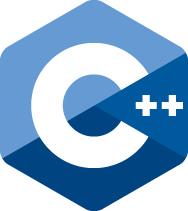The next generation of the industry-standard tool for Windows, Xbox One®, Xbox Series X|S®, PlayStation®4 and PlayStation®5.







Live++ is easy to integrate into an existing application, it just takes a few lines of code. You can go from the download page to up and running in as little as 10 minutes.

Check out this talk from the THQ Nordic Dev Summit 2023.
Check out this talk given at Mojang Stockholm in October 2025.
For users utilizing Visual Studio, Live++ offers a few extra features that make working with the IDE even more convenient.
Starting with JetBrains Rider 2024.3, Live++ also offers the same level of convenience to users of Rider.
Live++ has been designed to support virtually any build setup; it reliably works with both debug and optimized builds, and supports multi-process and networked editing.
Live++ supports arbitrary target applications that do not need to know about Live++ at all. For such target applications (e.g. Unity) that allow loading native modules or plugins of any kind, Live++ can be utilized for those modules as well.
Live++ supports both local and remote processes, allowing you to hot-reload changes into client/server applications and multiplayer games.
Live++ lets you simultaneously apply changes to multiple running processes.
Live++ uses the native toolchain which the executable was built with for compilation, and does not parse any source code.
Live++ works exclusively at the binary level. It extracts and reverses most of the needed information from executable files, object files, and debug information.
Hot-reload supports all C++ features such as RTTI, polymorphism, exceptions, and so on. Live++ inherently supports all compiler-dependent features your code might use.
Live++ automatically detects and splits unity/jumbo/blob files. This fully harnesses the shorter compile times provided by unity builds while also delivering excellent single-file iteration times.
The Live++ Agent loaded into your process is very lightweight. Almost all information is kept in a separate process.
Fully featured, no registration required, no strings attached.